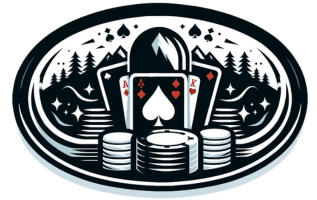Introduction: “The Theory of Poker Applied to No-Limit” by David Sklansky is an updated edition of his classic book, “The Theory of Poker,” with a focus on no-limit hold’em. The book was published in 2014 and contains 240 pages of advanced concepts and strategies for no-limit hold’em players. Sklansky is a highly respected poker theorist and author of many popular poker books, including “Hold’em Poker for Advanced Players” and “Tournament Poker for Advanced Players.”
Overview: The book begins with an introduction to no-limit hold’em and an explanation of why the game has become so popular in recent years. Sklansky then moves on to discuss the importance of position and how to play in different positions, as well as how to read your opponents and make better decisions based on their actions. He covers concepts such as pot odds, implied odds, and expected value, as well as how to calculate them accurately.
One of the key themes of the book is the importance of understanding and applying game theory to your play. Sklansky explains the basic principles of game theory and how they apply to no-limit hold’em, including concepts such as equilibrium strategies and Nash equilibrium. He also discusses advanced strategies such as mixed strategies and how to use them effectively in your game.
Another important topic covered in the book is the concept of hand ranges and how to use them to your advantage. Sklansky explains how to construct and narrow your opponent’s hand range based on their actions, as well as how to use your own hand range to bluff and make better decisions.
The book also contains several case studies and hand examples to illustrate the concepts discussed in each chapter. Sklansky walks the reader through each hand and explains the thought process behind each decision, providing valuable insights into the mindset of a top-level poker player.
Pros: “The Theory of Poker Applied to No-Limit” is a highly detailed and comprehensive guide to advanced no-limit hold’em strategy. Sklansky’s writing style is clear and concise, making the complex concepts easy to understand. The book covers a wide range of topics, from position play to game theory, and provides actionable strategies that can be applied immediately to your game. The case studies and hand examples are especially helpful in illustrating the concepts discussed in each chapter.
Cons: One potential drawback of the book is that it may be too advanced for beginner or intermediate players. Sklansky assumes a certain level of knowledge and experience from his readers, and some of the concepts discussed in the book may be difficult to grasp without prior knowledge of poker theory. Допълнително, the book was published in 2014, so some of the information may be slightly outdated in today’s rapidly evolving poker landscape.
Conclusion: Overall, “The Theory of Poker Applied to No-Limit” is a highly recommended read for serious no-limit hold’em players looking to take their game to the next level. Sklansky’s deep understanding of game theory and advanced strategy is evident throughout the book, and the practical strategies and hand examples provided are sure to help any player improve their game. While the book may be too advanced for some players, those who are willing to put in the time and effort to understand the concepts presented will undoubtedly benefit from Sklansky’s insights.



















































